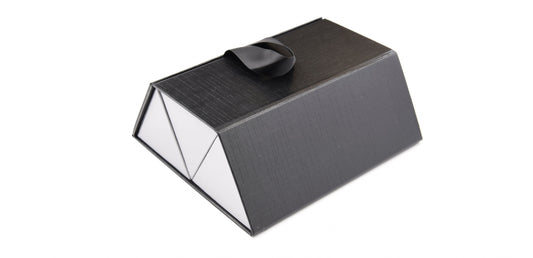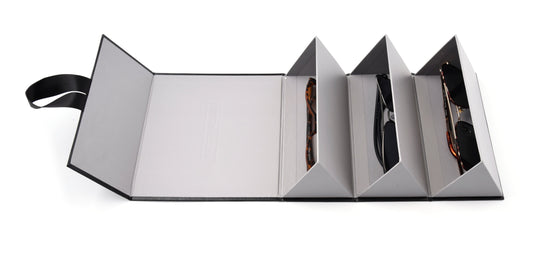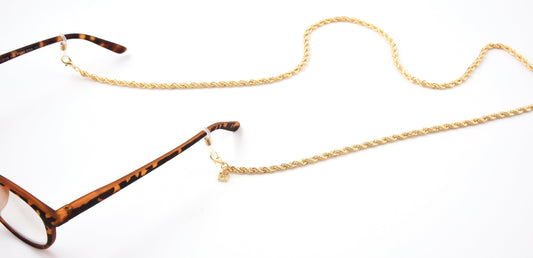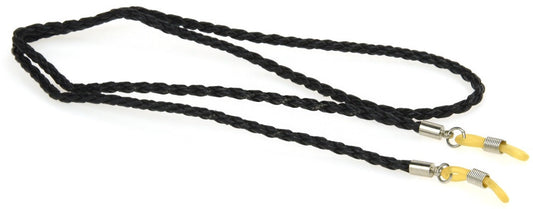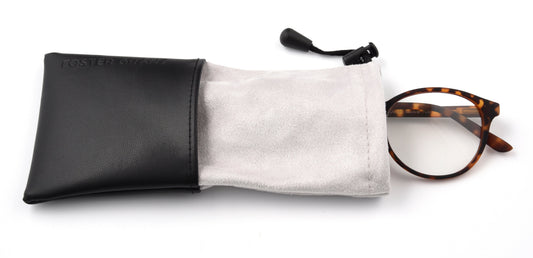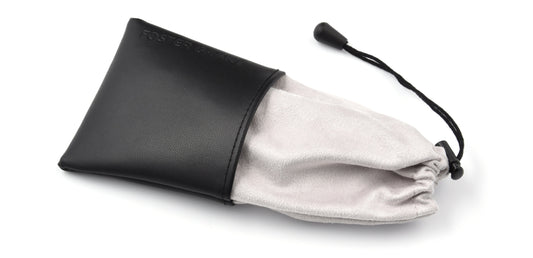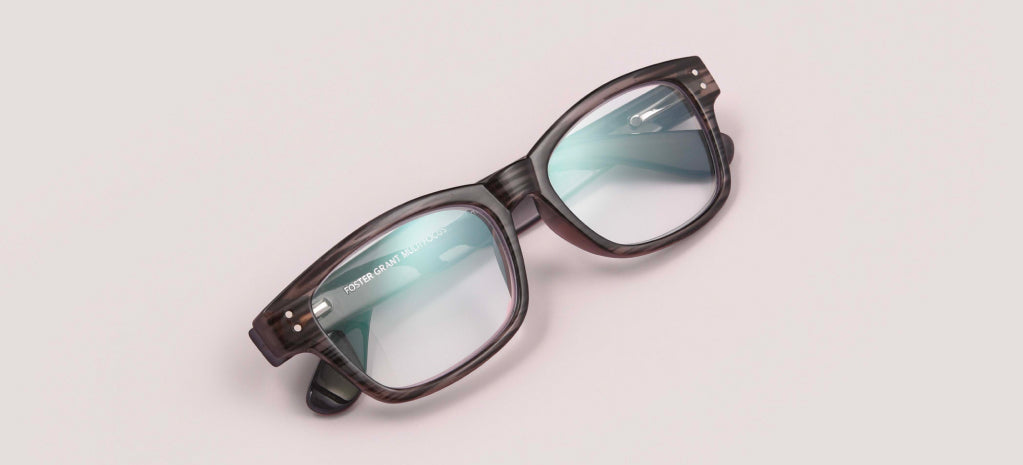Reading Glasses and Astigmatism
By Autumn Sprabary
Reviewed by Sonia Kelley, OD, MS on October 17, 2024
When it comes to vision, one size rarely fits all. For many, a simple pair of reading glasses might do the trick to read and see things up close more clearly, especially as we age. But for those with astigmatism, a common vision condition, standard reading glasses won’t do much to help them, even if they have presbyopia.
Below, we explore why reading glasses can’t correct astigmatism and what to consider when choosing the right pair of glasses for astigmatism. Whether you're picking up your first pair or looking for a lens upgrade, understanding what glasses work best for your vision is key to seeing the world more clearly.
What Is Astigmatism?
Astigmatism is a type of vision problem known as a refractive error. Refractive errors are a group of vision conditions that affect the eyes’ ability to bend (refract) light. These errors can cause vision to appear blurry close-up, far away, or both.
Astigmatism is usually caused by irregularities in the cornea, which is the eye's clear front surface. The profile (view from the side) of a regular cornea should look round, like a ping pong ball. This means the curvature is even across the cornea’s surface.
An astigmatic cornea looks more like the back of a spoon when viewed from the side — its curvature is steeper in one direction than the other. This causes incoming light to scatter instead of focusing on the retina at the back of the eye. This can make vision blurry at near and far distances.
Can It Be Corrected?
Yes, astigmatism can be corrected temporarily or permanently. Prescription glasses and contact lenses can correct your astigmatism while you’re wearing them. However, once you remove them, your vision will become blurry again.
Corrective laser surgery, like LASIK or PRK (photorefractive keratectomy) are more permanent treatment options for astigmatism. These procedures involve an eye surgeon reshaping the cornea to correct astigmatism.
If you have astigmatism, discuss the different options for correction with your eye doctor. They can advise the best treatment strategy for your vision.
Can Reading Glasses Help With Astigmatism?
No, reading glasses will not help with astigmatism. Here’s why:
Astigmatic eyes require a special type of eyeglasses lens called a cylindrical lens. Cylindrical lenses are created to compensate for astigmatism in a specific area of the lens. This area of the lens coincides with the varying steepness of the cornea’s curvature. Eyeglasses that correct for astigmatism require a vision prescription.
Over-the-counter (OTC) reading glasses only help you focus up close. They offer slight magnification to help compensate for presbyopia. Presbyopia is an age-related vision change that causes blurred vision when reading or viewing things up close. OTC reading glasses don’t require a vision prescription and do not correct for astigmatism.
If you have both astigmatism and presbyopia, your eye doctor can prescribe glasses that correct your astigmatism and help you see clearly while reading or working on the computer.
How Do You Know if You Need Glasses for Astigmatism?
The only real way you’ll know whether you need glasses for astigmatism is by having an eye exam. An eye doctor will be able to pinpoint the cause of your blurry vision and provide you with a prescription for corrective glasses or contact lenses.
For parents who suspect their child needs glasses, here are some signs that may indicate that they have astigmatism:
- Squinting
- Eye rubbing
- Headaches
- Eye strain or fatigue
- Blurry vision at near or far distances
- Seeing halos or bright glare around sources of light
Adjusting to Glasses for Astigmatism
While getting glasses for astigmatism will improve your vision, it may take a little time to get used to them. It should only take a couple of days for a person to adjust to single-vision glasses, but multifocal or progressive lenses may result in a longer adjustment period — up to a few weeks.
During the adjustment period, you may experience:
- Dizziness
- Tired eyes
- Headaches
- Trouble gauging depth or distance
- Feeling like the edges of your visual field are distorted — known as the “fishbowl effect”
The best way to quickly adjust to your new glasses is by wearing them all the time. Doing so helps the brain and eyes adjust to their “new normal.” If you have an old pair of glasses with an outdated prescription, you should avoid wearing them. Yes, they may be your tried-and-true pair of specs, but going back to what’s comfortable will only prolong the adjustment period.
If you’ve been wearing your glasses for a while and these symptoms don’t improve over time, talk to your eye doctor. Your vision prescription or eyeglass lenses may need to be adjusted.
What Type of Glasses Do You Need for Astigmatism?
The types of glasses you need for astigmatism depend on your unique vision needs. If you only have astigmatism, single-vision glasses can help correct it. Single-vision lenses correct astigmatism alone or astigmatism combined with either myopia or hyperopia.
If you're 40 or older and need correction for presbyopia as well as astigmatism, you may enjoy multifocal or progressive lenses. Progressive lenses correct vision at multiple distances within a single lens.
After the eye doctor performs an eye exam and updates your prescription, they can make recommendations on what glasses best fit your needs.
SOURCES
- Refractive errors. Cleveland Clinic. September 2022.
- Astigmatism. American Optometric Association. Accessed October 2024.
- Astigmatism. Cleveland Clinic. November 2022.
- How do glasses work? FramesDirect. Accessed October 2024.
- Presbyopia. Cleveland Clinic. July 2023.
- How long does it take to adjust to new glasses? Glasses.com. February 2022.
- How to adapt to your progressive lenses? Essilor. Accessed October 2024.
- What’s the difference between single-vision and progressive lenses? All About Vision. October 2023.
The sources listed here have been provided for informational purposes only. The citation of a particular source does not constitute an endorsement or approval of EssilorLuxottica products, services, or opinions by such source.
*Like Foster Grant, All About Vision, FramesDirect, Glasses.com, and AAV Media, LLC are affiliates of EssilorLuxottica.
